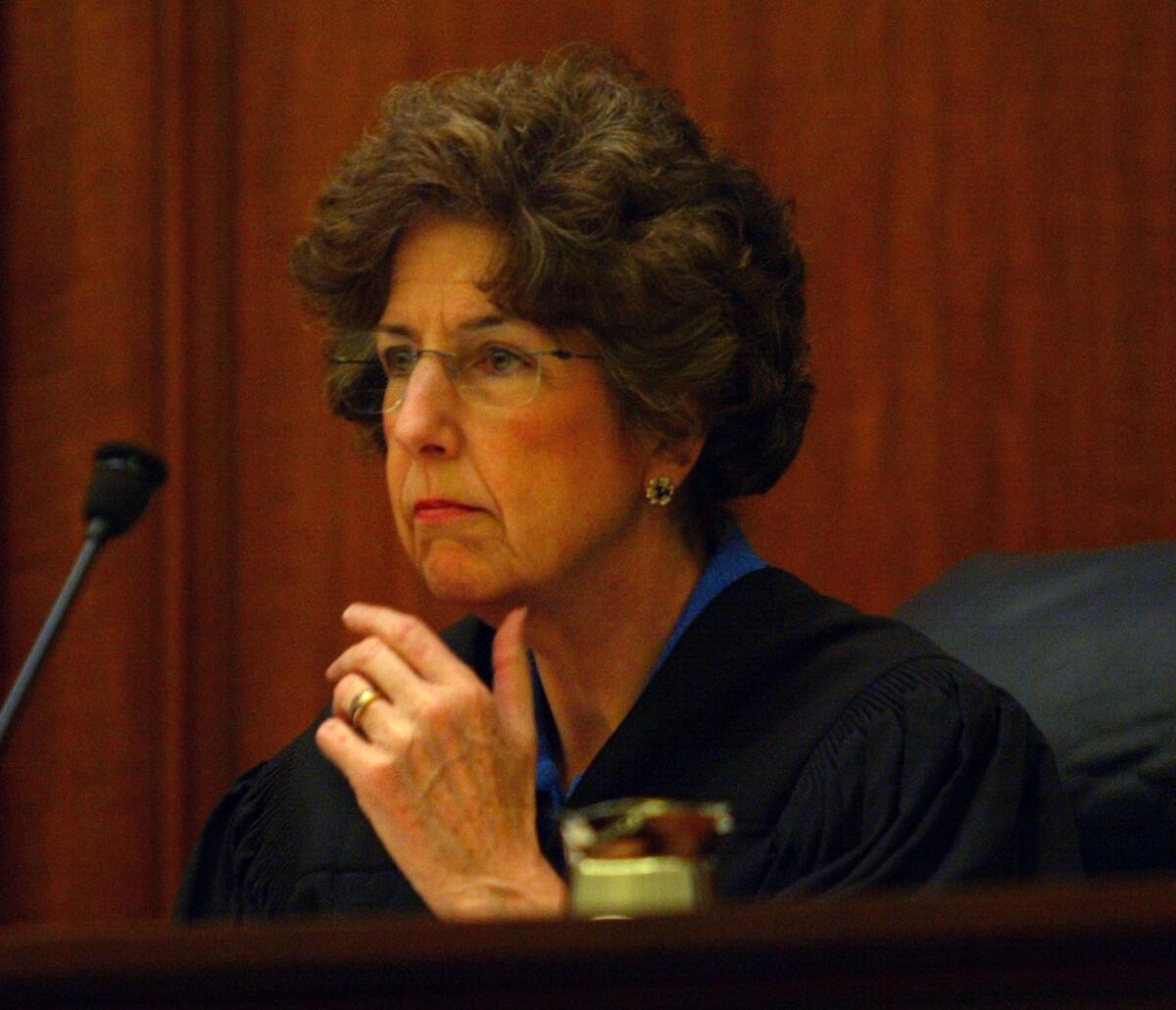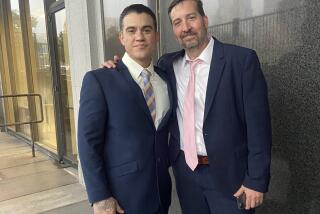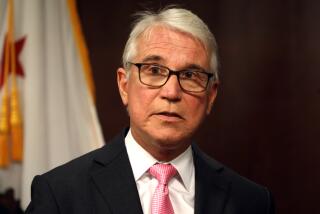Convictions in death penalty case overturned due to juror misconduct

The California Supreme Court on Monday unanimously overturned multiple convictions that sent a Riverside County man to death row for murdering two people and attempting to kill a third.
In a ruling written by Justice Carol A. Corrigan, the state high court said juror misconduct tainted the 2002 trial of Fred Lewis Weatherton, creating “a substantial likelihood of actual bias” that deprived him of a fair trial.
The state Supreme Court rarely overturns verdicts in death penalty cases, and the unanimity of the court in such rulings is even more unusual.
But Corrigan, one of the more conservative justices, cited evidence that a juror identified only as “P.P.” decided Weatherton should get the death penalty before the trial was even over and discussed his views outside deliberations.
“P.P.’s transformation from impartial fact finder to combative advocate before deliberations began is separate and serious misconduct,” Corrigan wrote.
Weatherton was convicted of killing Latonya Roberson, 33, and Samuel Ortiz, 43, both of Indio, and attempting to murder a third person. That person survived the shooting and identified Weatherton as the culprit.
The victims had known Weatherton and smoked crack cocaine with him before the shootings. Prosecutors said Weatherton shot them in a robbery attempt.
The trial judge found that P.P. had committed serious misconduct but decided his actions did not show that bias infected the trial. Corrigan said a finding of misconduct creates an assumption of bias, and prosecutors had failed to rebut that presumption.
“It is undisputed that P.P. repeatedly talked about the case outside deliberations,” Corrigan wrote. “He did so in direct defiance of the trial court’s repeated admonitions.
“He discussed the case during his daily commute, at lunch, during cigarette breaks, in court hallways, and in elevators.”
Michael R. Snedeker, who represented Weatherton on appeal, said the evidence of juror misconduct was so egregious that the court had little choice but to overturn the verdict.
“This court is a conservative court court and single incidents of misconduct are not likely to make much difference,” Snedeker said. “But there was a sustained effort by this guy to get the verdict he wanted and to lobby for it.”
He said Weatherton must be given a new trial, negotiate a plea deal or be released.
The deputy attorney general who argued the case for the state declined to comment.
Follow @mauradolan for news about California legal issues.
More to Read
Start your day right
Sign up for Essential California for news, features and recommendations from the L.A. Times and beyond in your inbox six days a week.
You may occasionally receive promotional content from the Los Angeles Times.







